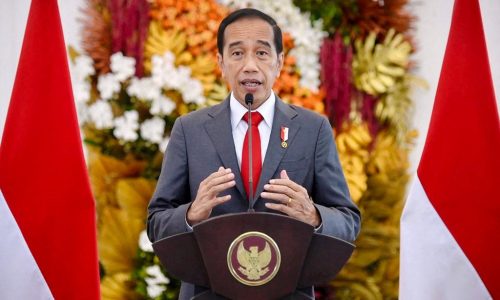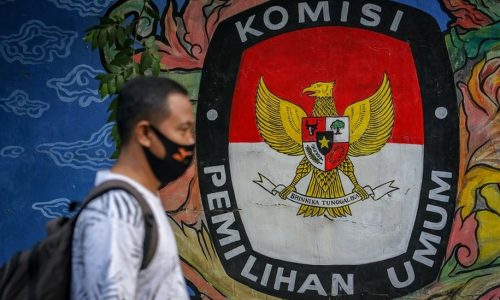The government has eased regulations on Domestic Component Level (TKDN) in the electricity sector to attract investments in new renewable energy projects (EBT), revoking Industry Minister Regulation No. 52/2012, which provides guidelines for using domestic products in electricity infrastructure development.
Minister of Industry, Agus Gumiwang Kartasasmita, says that the decision to repeal this regulation stems from a joint meeting with the Coordinating Minister for Maritime Affairs and Investment.
“After careful consideration, we have decided to repeal Industry Minister Regulation No. 54/2012,” Agus said in an official letter addressed to the Coordinating Minister for Maritime Affairs and Investment, dated May 13, 2024.
Agus cited several reasons for revoking the regulation. Firstly, provisions in the Industry Minister Regulation No. 54/2012 mainly pertain to electricity infrastructure development, which falls under the jurisdiction of the ministry responsible for energy.
Secondly, not all types of power plants eligible for construction in Indonesia are covered by the Minister Regulation No. 54/2012. Power plants utilizing wind, wave, hydrogen, biomass, nuclear, and other sources are excluded from its scope.
Furthermore, revoking Minister Regulation No. 54/2012 is essential to avoid potential conflicts with regulations regarding the mandatory use of domestic products, as stipulated in higher-level regulations introduced after the enactment of this regulation. This aligns with recommendations from the Supreme Audit Agency (BPK) and the Corruption Eradication Commission (KPK).
“We believe that the development of electricity infrastructure funded through foreign loans or grants can proceed in compliance with the relevant laws and regulations governing foreign financial assistance,” Agus remarked in the document quoted on Tuesday, May 14, 2024.
However, the utilization of domestic products in the intended construction projects will still adhere to the provisions of domestic product regulations.
Previously, Eniya Listiani Dewi, Director General of New and Renewable Energy and Energy Conservation (EBTKE) at the Ministry of Energy and Mineral Resources (ESDM), highlighted that foreign investment worth Rp 49 trillion for solar power plant (PLTS) construction had faced obstacles due to TKDN regulations.
The ESDM ministry is advocating for TKDN relaxation to encourage green investments in Indonesia. Eniya emphasized that PLTS and other EBT projects had stalled due to the controversies surrounding TKDN requirements.
She noted that TKDN regulations mandated a 60 percent domestic component requirement for PLTS. However, many PLTS components still needed to be imported, and foreign investors often insisted on using components they supplied if they were to invest in Indonesia.
“Numerous obstacles have arisen because all investments must incorporate TKDN elements,” Eniya said as quoted by Katadata on May 7, 2024.
Eniya said further that while the government and Commission VII of the House of Representatives agreed to prioritize the use of local materials in PLTS installation, TKDN relaxation would be considered if local industries could not meet the PLTS component requirements.
She specified that TKDN relaxation would specifically target investments in foreign PLTS development. Requests for relaxation would be forwarded to the Ministry of Industry, which would then coordinate with the Coordinating Ministry for Maritime Affairs and Investment, the National Team for the Increased Use of Domestic Products (P3DN) program. The P3DN national team would ultimately decide on TKDN relaxation approvals.










